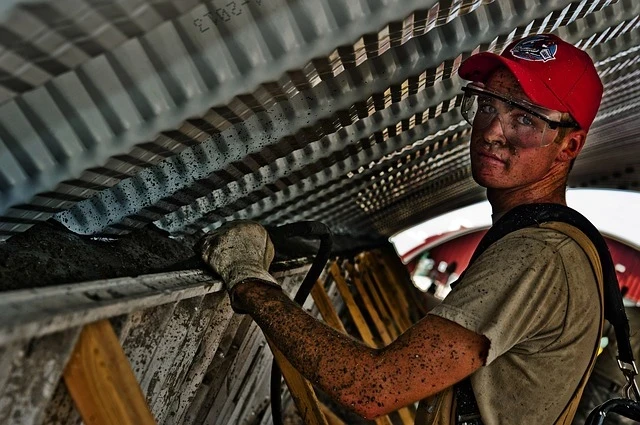Using Body Language as a Business Leader

Using Body Language as a Business Leader
As a business leader, you have to develop plenty of skills. Leadership means wearing many different hats and accomplishing many different tasks over the course of the day. One of the most important skills you’ll learn, however, is how to use your body language in order to impact the attitude and motivation of your employees.
Contagious Attitude: The Power of a Smile
When you’re stuck in the middle of a stressful day, the last thing you want to do is paste a smile on your face and pretend that everything is going well. This simple action, however, can make a big difference, not just for you, but for your employees, as well. When you smile, your employees will be more likely to smile back at you.
The simple action lowers stress hormones and releases hormones into the reward centers of the brain, thereby making your entire team feel better about the stressful day you’re having. Not only that, when you smile, you’ll increase your own satisfaction, which makes it more likely that you’ll remember to do things like complementing the employees who have gone above and beyond for you during this difficult time.
Keep Your Head Straight
Confidence is one thing; being cocky is something else entirely. When you’re in a meeting or listening to someone else speak, make an effort to keep your head straight. Tilting it to the side gives an impression of cockiness, which is not the impression you want to convey.
Use the Right Tone
Your tone of voice has a huge impact on how people perceive you. You can say all the right words, but if your voice doesn’t hit the right level, your employees aren’t going to respond to it the way you want. A confident leader typically displays several key characteristics in their speech:
- A lower pitched voice
- Sentences that are carried confidently through to completion rather than dropping off at the end
- Dynamic inflection
- Clear articulation
Control Movement to Attract Attention
When you want the eyes of the employees you’re managing to be on you, move to attract their attention before you speak. You’ll find that people are naturally drawn to movement, which means that shifting your position by just a step or two is enough to make sure that there are more eyes on you. Ceasing movement helps to underscore the point that you’re making once they’re looking at you–not to mention making you appear more decisive.
Reduce the Appearance of Tension
When you are calm, relaxed, and confident, you’re more likely to inspire the same emotions in everyone around you. By reducing the appearance of tension, you can substantially change the attitude of the room. After all, you believe in your employees and their ability to accomplish the goal in front of them–that means they can believe in themselves, too. A few simple exercises can help you learn to relax the natural tension in your face, neck, and shoulders, changing the image you present to everyone around you.
Pay Attention to Employees
If you want to increase the odds that people will participate in a discussion, share their problems with you, or give their best to projects that you’ve assigned, the best tactic is to ensure that they know you care about their participation–that is, to look like you’re listening. Don’t multitask during meetings or when an employee is talking to you. Instead of talking over them, take the time to listen to everything they have to say before formulating your response. These simple steps can make a big difference in how you are perceived by your employees.
Learning to use body language to your advantage is a great way to make more out of every interaction you have with the employees who work with you. By practicing a few simple controls, you can change the way they perceive you, shape your workplace culture, and better motivate every employee throughout the business.
Michael DeSafey is a leading executive recruiter for professionals in the construction, engineering and environmental industries. He is currently the President of Webuild Staffing www.webuildstaffing.com . To learn more about Michael or to follow his blog please visit www.michaeldesafey.com
A Career in Crisis – Beating Burnout

A Career in Crisis – Beating Burnout
The Grind. We all know it. We all live it. Day after day, week after week, you go to work, prepared to battle in the trenches for your firm. Day after day, week after week. Client demands are mounting; you start viewing them as the enemy.
It’s no wonder you’re on the verge of burn-out. It’s getting harder and harder to answer the bell on Mondays, and it’s downhill from there. Commuting and traffic and meetings and phone calls and technology and deadlines and…
…you’re not at your best at home. Your family is getting the office leftovers. Most of your time after work is a whirlwind of homework, dinner, getting the kids down. Then finally, finally, a few minutes of down-time before bed. Then the alarm goes off and it starts all over again.
Yeah, burnout is right around the corner. It’s one of the most insidious career-killers in the A/E/C industry. Weekends aren’t nearly long enough to recharge your battery. How can you get off the hamster wheel; to put on the brakes before you hit that wall? Here’s how to fix your career crisis and beat burnout:
Take Some Time For Yourself….
It’s that simple. Make some time, every day, to be by yourself. Leave your office and turn off your cell. Go outside if possible. Close your eyes and listen to music. Read a devotion or a chapter in the book that’s been collecting dust on your nightstand. Take a walk. Fifteen minutes, every day, will save your sanity. These are 10 things that happen when you spend time alone:
- It’s quiet. Don’t underestimate this. It’s therapeutic for your tired, overstimulated brain.
- Your mind learns to rest. This isn’t automatic. You have to work at it but, eventually, your mind will learn to rest.
- You learn to relax. Again, this isn’t automatic. With time, your breathing and heart rate slow. Your shoulders drop. Tension leaves your neck.
- You think more clearly. Once your mind learns to rest, it’s easier to organize thoughts, free of the clutter and noise.
- You become a more positive person. As the stress and negativity start sliding away it becomes more natural to feel better about yourself and the world around you.
- You have more patience. Positive people tend to extend more grace to others. Clients become friends again.
- Your priorities become more defined. It’s easier to see the forest when you aren’t focusing on each tree bearing down on you.
- You are a better spouse/partner/friend. All of that positivity and good feelings bring sunshine to those you love!
- You become a better leader. A clear head and more patience will result in better decisions and a more cohesive team.
- Your life is better. Promise.
Spending time alone, every day, will reboot your life and heal your career crisis. It won’t get rid of traffic or extend deadlines, but you’ll be able to handle them in a more positive manner.
Michael DeSafey is a leading executive recruiter for professionals in the construction, engineering and environmental industries. He is currently the President of Webuild Staffing www.webuildstaffing.com . To learn more about Michael or to follow his blog please visit www.michaeldesafey.com
Riding the Wave of Market Cycles – How to Rebound From a Layoff

Riding the Wave of Market Cycles – How to Rebound From a Layoff
It’s a fact of life for an A/E/C professional: the market cycles. One quarter your team is working 60-70 hours a week, hair on fire. The next, everyone is scraping for billable hours. That’s when layoffs happen.
If you’ve been a victim of that ominous visit to the HR director, you might feel as if your career is irreparably damaged. The opposite is true! A layoff may be a catalyst to a great opportunity. Here are some tips to help you successfully rebound from a layoff:
Take a breath – It’s not unusual for senior and executive level professionals to fall victim to layoffs. It’s not necessarily a commentary on your abilities. Don’t panic! Opportunities exist, even in the tightest of markets. At your level, you can often make your own opportunity.
Brush up your resume – Make sure your experience is represented completely and accurately. Highlight the major programs you’ve managed, and the problems you’ve solved. Focus on delivery and budgets met. Get references from owners who are satisfied with your work. Caveat: Don’t embellish! The A/E/C community is small and everyone knows the truth.
Market yourself – You know what projects are coming up in your area of expertise. Meet with the owners and make sure they have a favorable opinion of you. Find out which firms are positioning. Make sure they get your tailored resume. Put yourself forward as the program/project manager that the owners want to see on an org chart.
Use your network – This is one of the benefits of a strong network. Someone knows someone who needs a senior/executive level professional. Make sure that everyone knows that you’re in the market for a new opportunity. Bonus tip: Never, ever air your previous employer’s dirty laundry to your network! You will be forever tainted as an unreliable gossip, and you’ll show yourself as untrustworthy.
Don’t forget Social Media – LinkedIn is often used as a job/employee search tool. Make sure you update your profiles to reflect your availability and interest in new professional adventures. Use the media to your advantage by posting articles that exhibit your professional chops.
Brush up on your skills – Many professional organizations offer training and certification programs. Take this time to add to your qualifications. Go outside the box and stretch your boundaries.
Check Job Banks – These same organizations often have robust job banks. Check the Engineering News Record job postings as well. There are often opportunities for senior and executive level professionals all over the country. Again, think outside the box. Many states have amazing programs and need your level of expertise.
Michael DeSafey is a leading executive recruiter for professionals in the construction, engineering and environmental industries. He is currently the President of Webuild Staffing www.webuildstaffing.com . To learn more about Michael or to follow his blog please visit www.michaeldesafey.com
Less Stress For Success!! Maintaining Balance Between Work And Life..

Less Stress For Success!! Maintaining Balance Between Work And Life..
Managing work related stress, while balancing work and life, is a very slippery slope. Problems pop up all the time! It is one of the realities of working in a professional industry. With the high standards expected from workers in fields such as architecture, design, and environmental protection, stress can easily restrict employees from doing their best. Rules and regulations, especially when it comes to environmental projects, can sometimes make people on edge. It gives them a sort of fear of failure, making their work ethic unstable. Maybe a client is throwing away hard work because they are not satisfied, or maybe they’re unrealistically changing everything.
In the engineering and construction business frustration levels can skyrocket. And as much as you’d like it to end there, it doesn’t. It’s hard to maintain a good, healthy lifestyle when your job is stressful. That stress keeps getting heavier and heavier on your shoulders till you feel ready to break! Your job, whether it’s the planning or building, is important to the industry as a whole. Don’t be the link in the chain that breaks! Here are a few tips to step out from under that heavy burden of work related stress and take back your life.
Tip #1: Breathe – You’ve probably heard it before, the famous phrase, “Calm down” often comes with an assistant, “Take a deep breath.” Maybe you don’t believe in that anymore. The whole “calming” backwards countdown is a little childish for your taste. Don’t shoot deep breathing down just yet! Deep breathing helps promote a sense of calm, delivering needed oxygen to the brain, and really helping you focus. Plans fall through, deadlines are shortened, equipment breaks down…the list goes on and on. Often when we are stressed it’s hard to keep our focus, missing problems that may be right under our noses. It’s easy to become overwhelmed in a high-end industry. Breathing is key to maintaining a stress free outlook on those unavoidable problems. Try inhaling for five count and exhaling for five count. You can do more or less if you feel this is insufficient or too much. Take a step back if needed and then reintroduce yourself to the problem.
Tip #2: Communication – Frustration equals lack of communication. This can lead to all kinds of problems in the industry. Any successful company can tell you, correct communication keeps things running smoothly. When something is really stressing us out, the most insignificant things could make us blow up. We’ve all had our moments. The problem is when we blow up at other people. Everyone gets hurt when that happens and nothing gets accomplished. You notice someone has made a mistake; maybe they are not following safety protocol, or have misread instructions. Letting them know calmly and asking them to correct their mistake it is the easiest and most effective way to fix the problem. Perhaps you need a different angle on your project, or help deciding the best route to completing it. Don’t let your pride get in the way of your job. It’s necessary to communicate your problems and to seek help in working them out.
Tip #3: Personal Time – If you’re working long hours, or even stressful short ones, be sure to make some time for personal activities. Having a balance between life and work is important to be successful. You shouldn’t let work over-complicate your life and vis versa. Often, if there isn’t a problem at work there is a problem at home. Learn to relax into your life again. Pick up a hobby or get some exercise to relieve stress. Activities you enjoy can help you to appreciate yourself and all that you can do! Turn off the tv (Unless you’ve got an important game scheduled, which is understandable) and go outside! Take in nature and relax! Do whatever you find relaxing. And make sure you are eating right and getting enough sleep.
These tips will undoubtedly improve your mood and your work ethic. If you mess up ask for forgiveness, forgive yourself, fix the problem, and move on. It’s up to you to take that step closer to a happier, healthier, and more fulfilling balance between your job and your life.
Michael DeSafey is a leading executive recruiter for professionals in the construction, engineering and environmental industries. He is currently the President of Webuild Staffing www.webuildstaffing.com . To learn more about Michael or to follow his Blog please visit www.michaeldesafey.com
